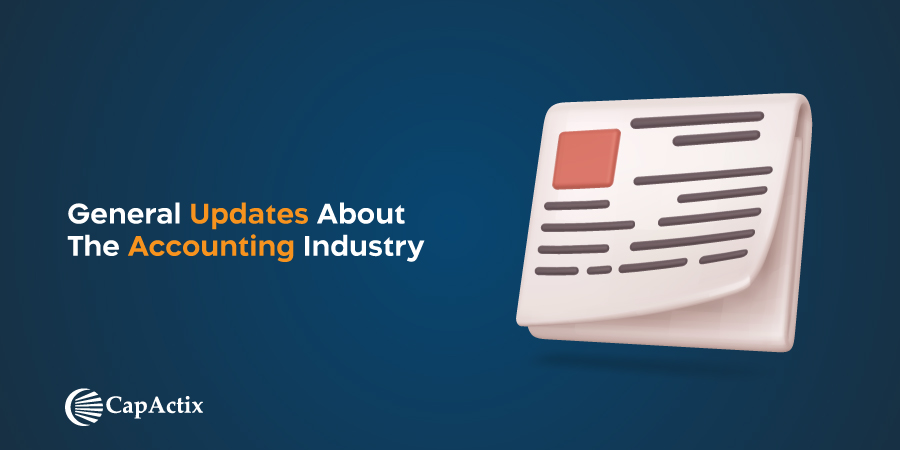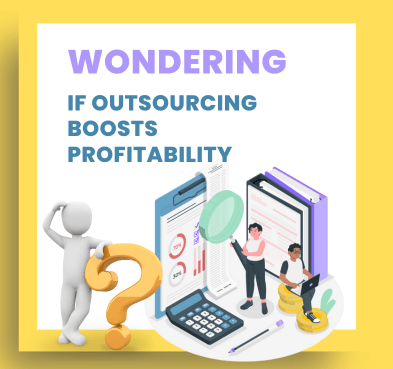You do so much more than crunch numbers as an accountant; you develop a financial strategy, provide strategic counsel, comply with the newest tax legislation, take steps to save money for the client, increase income in their firm, and the list goes on.
However, because accounting is a continually growing sector with so many subdivisions, you won’t be able to prosper if you stick to your old accounting skills. You must continue to learn and enhance your abilities in order to grow, innovate, and become a great accounting professional.
Collaboration in this industry never pauses, e.g., when TowerBrook Capital Partners, a venture capital firm headquartered in New York City, stated in early August that it had made a tactical interest in EisnerAmper, a Top 20 accounting firm. You always need to be updated about the latest developments that are happening in the accounting industry.
latest updates About The Accounting Industry
And so here, in this article, we will discuss the latest updates and the news that one must know about.
The AICPA suggests that QBI be improved
In a letter to Senate tax-writing leaders, the AICPA proposed some steps to increase the deduction for qualified business income under Sec. 199A. Five of the recommendations are related to proposed revisions to Sec. 199A contained in S. 2387, the Small Business Tax Fairness Act, introduced last month by Sen. Ron Wyden, D-Oregon.
The eight improvements suggested by the QBI were:
- Getting rid of the SSTB distinction
- Bringing together different trades or industries for QBI
- Keep the deduction for qualified business income (QBI) for estates and trusts.
- Keep the QBI deduction for ESBTs in place.
- Treatment of rental operations should be simplified.
- QBI losses should be simplified.
- Get rid of the marriage penalty.
- Self-employed taxpayers’ deductions
Procedures for changing accounting methods automatically have been changed
The Internal Revenue Service (IRS) amended the list of accounting method changes that are subject to automatic change procedures (Rev. Proc. 2021-34).
Unless otherwise specified, a taxpayer must obtain IRS approval before changing its accounting method. Taxpayers must submit Form 3115, Application for Change in Accounting Method, to the IRS for approval. Taxpayers must file Form 3115 even if the IRS’s consent is not required.
These changes affect a wide range of topics, including uniform capitalization (UNICAP) procedures, changes in the overall method of accounting from cash to accrual, the timing of income recognition, and the timing of incurring inventory expenses, among other things.
New York swoops down on high-earners with remote-worker audits
Individuals earning as low as $100,000 a year who claim to have left the state during the COVID-19 outbreak are being targeted by New York tax officials as part of an extraordinary effort to reclaim lost income-tax revenue.
The Internal Revenue Service (IRS) has issued new guidance on the Employee Retention Credit
New guidelines on retaining employees credit have been provided by the Treasury Department and the Internal Revenue Service, including guidelines for firms who pay eligible wages after June 30, 2021, but before January 1, 2022
ERC would be phased out, and crypto-asset reporting would be increased under the infrastructure law
The Senate adopted an infrastructure bill (H.R. 3684) to end the employee retention incentive early and compel the broker reporting of crypto-asset transfers. It also includes many other tax laws, as well as funding for a number of infrastructure and other initiatives.
While the infrastructure plan contains minimal tax provisions, the Senate Budget Committee produced a memorandum on August 9 outlining more substantial tax reforms that members of the panel would want to see in the fiscal year 2022 budget reconciliation package.
Private companies will be able to account for share-based rewards in a realistic way, thanks to the FASB
The FASB has approved a suggestion by the Private Company Council to allow a private firm to assess the current price input of equity-classified share-based awards awarded to both employees and non-employees using a feasible expedient.
After the staff writes the paper, the board agrees to release an accounting standards update that FASB board members can vote on through a written ballot. Companies would employ a valuation technique based on Treasury regulations relating to Section 409A of the Internal Revenue Code.
For the majority of PPP loans, the SBA simplifies the forgiveness process
The Small Business Administration (SBA) released a new set of instructions to make the forgiveness process easier and faster for firms and non-profits with Paycheck Protection Program (PPP) loans of less than $150,000.
The SBA also announced the introduction of a new application portal on Aug. 4, which would allow borrowers to request forgiveness directly with the agency rather than through their lenders. More than 600 institutions have agreed to give more than 2.17 million borrowers access to the portal.
Read here the Latest accounting trends to follow by Ecommerce Industry in 2021
Bottom line
The accounting industry continues to evolve every moment. It may strain your employees to keep up with the new trends while focusing on company objectives.
While companies built established accounting firms around integrated in-house teams, there is a growing need for third-party Finance and Accounting Outsourcing of specific activities and projects. Financial services executives outsource or offshore parts of their services, according to 71% of them.
Outsourcing can also relieve tension for business owners who are concerned about personnel turnover or possible layoffs. A credible service provider’s breadth of services and collaboration can assist firms in streamlining the process with expertise, expediting opportunities, and improving synergy. It also allows your company to expand its client base, provide a wide array of services, and address critical skill gaps for high-tech projects.
CapActix Business Solutions allows companies to re-enforce their employee attention to in-house objectives while leaving finance and accounting outsourcing activities to them.
















